
The Beat are an English band formed in Birmingham, England, in 1978. Their music fuses Latin, ska, pop, soul, reggae and punk rock.
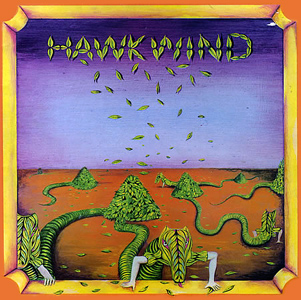
Hawkwind is the debut album by Hawkwind, released in 1970, originally on Liberty Records, later reissued on Sunset Records. This album is historic since it is one of the first space rock LPs.

The Motors were a British pub rock band formed in London in 1977 by former Ducks Deluxe members Nick Garvey and Andy McMaster together with guitarist Rob Hendry and drummer Ricky Slaughter. Their biggest success was with the McMaster-penned song "Airport", a number 4 UK hit single in 1978.
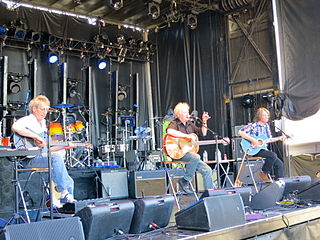
The Strawbs are an English rock band founded in 1964 as the Strawberry Hill Boys. The band started out as a bluegrass group, but eventually moved on to other styles such as folk rock and progressive rock.

On Parole is a studio recording released by British rock band Motörhead. It was intended as their first album and left unreleased at the time of its completion in 1976, and it was not released until over three years later, in November 1979, after the commercial success of Overkill and Bomber that same year. It was released without the band's permission, and they consequently distanced themselves from it. As a result, it was not considered an official release by the band at the time and they did not want it released, as they had moved on, since then, first to Chiswick Records and then to Bronze Records. The LP entered the UK charts on 8 December, where it peaked at No. 65.
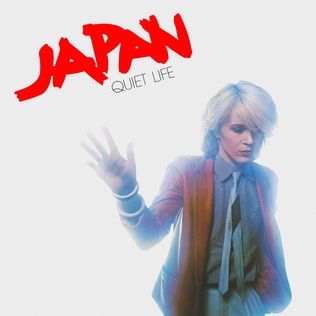
Quiet Life is the third studio album by English new wave band Japan, first released on 7 December 1979 in Canada, Japan and The Netherlands by record label Hansa and on 18 January 1980 in the UK.
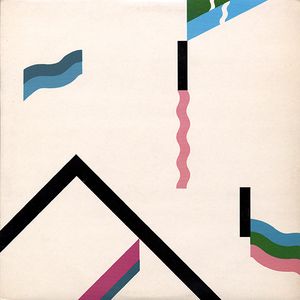
154 is the third album by the English post-punk band Wire, released in 1979 on EMI imprint Harvest Records in the UK and Europe and Warner Bros. Records in America.

Warrior on the Edge of Time is the fifth studio album by the English rock band Hawkwind. Many of the lyrics are by Michael Moorcock, and the album is loosely based on the concept of Moorcock's novel The Eternal Champion. It was the band's highest-charting studio album on the UK Albums Chart, where it peaked at number 13, and was their third and last album to make the US Billboard chart, where it peaked at number 150. Reviews have been mixed, with Melody Maker panning the album and particularly criticizing the vocal work while the All Music Guide has praised the album for features such as the songwriting. This would also be the last album to feature the band's bassist Ian "Lemmy" Kilmister, who was fired from the band one day before the album's release.
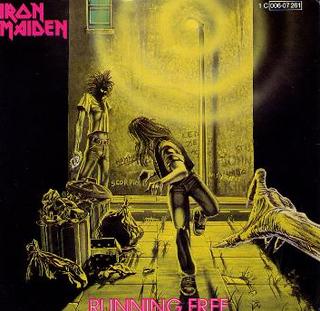
"Running Free" is the debut single by Iron Maiden, released on 8 February 1980 on the 7" 45 rpm vinyl record format. It was written by Steve Harris and Paul Di'Anno. The song appears as the third track on the band's debut album Iron Maiden. In 1985, a live version of the song was released as the first single from Live After Death. In 1990, the original single was reissued on CD and 12" vinyl as part of The First Ten Years box, in which it was combined with the band's next single, "Sanctuary". The 1985 live single was also released as part of this box set, combined with 1985's "Run to the Hills".
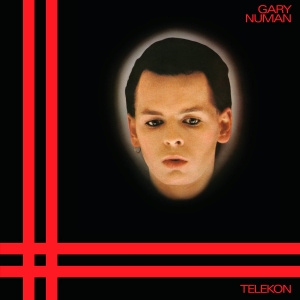
Telekon is the second solo studio album by the English new wave musician Gary Numan. It debuted at the top of the UK Albums Chart in September 1980, making it his third consecutive No. 1 album. It was also the third and final studio release of what Numan retrospectively termed the "machine" section of his career, following Replicas and The Pleasure Principle.
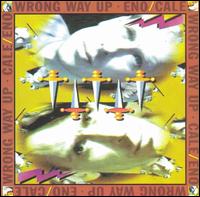
Wrong Way Up is the sole collaborative studio album by Brian Eno and John Cale, originally released on October 5, 1990 on Opal and Warner Bros. Records. The album sits between the electronic, prog-rock and art rock genres and features some of both Eno and Cale's most mainstream work.

Grave New World is the fourth studio album by English band Strawbs, their fifth overall. It was the first album to be released after the departure of Rick Wakeman, who was replaced by Blue Weaver, late of Amen Corner.

"Lay Down" is a single by the Strawbs which reached No. 12 in the UK Singles Chart in October 1972 - their first hit. It was included on their 1973 album Bursting at the Seams.

Ringing Down the Years is the fourteenth studio album by English band Strawbs. The album was released initially only in Canada. Because of the record company's request that a Canadian song be included on the album, the track "Might as Well Be on Mars" written by members of the Pukka Orchestra was included.
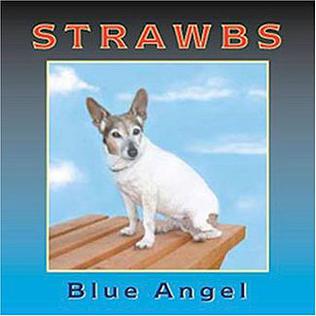
Blue Angel is the 15th studio album by English band Strawbs. It was the first Strawbs album in 12 years to contain new material and featured several different line-ups of musicians from past Strawbs eras. Welsh folk-singer Mary Hopkin featured on many tracks, continuing a working partnership established by Dave Cousins and Brian Willoughby on their album The Bridge, from which several of the tracks on this album are drawn.

Baroque and Roll is the sixteenth studio album by Acoustic Strawbs. Acoustic Strawbs were formed by accident after Dave Cousins and Brian Willoughby were booked to perform as a duo in Twickenham in 2000. Cousins damaged his wrist and Dave Lambert stepped in to cover while Cousins sang. The format was successful and tours were arranged. Brian Willoughby stepped down in 2004 to concentrate on his work with Cathryn Craig and he was replaced by Chas Cronk who added bass pedals and acoustic bass guitar as well as extra vocals and guitar.
"Grace Darling" is a song by English band Strawbs, featured on their 1975 album Ghosts.
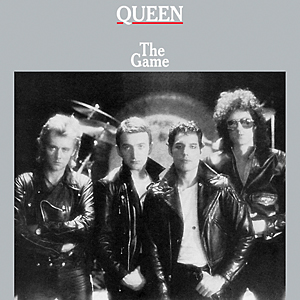
The Game is the eighth studio album by the British rock band Queen. It was released on 30 June 1980 by EMI Records in the UK and by Elektra Records in the US. The Game features a different sound from its predecessor, Jazz (1978). The Game was the first Queen album to use a synthesizer.

Farewell, Farewell is a live Fairport Convention album recorded on the band's farewell tour in 1979. It is the last Fairport album to feature fiddler/mandolinist Dave Swarbrick. Tracks are drawn from three performances of the Farewell Tour during Spring 1979: at Birmingham University, Southampton University and at Derby Assembly Rooms. Most of the songs are performances of already familiar tracks from previous studio albums. In 1997 to mark the 30th anniversary of Fairport Convention, the album was remastered, repackaged and re-released as "Encore Encore". This version included the 1980 studio single "Rubber Band" plus three additional tracks recorded on the 1979 tour: "The Hens March Through the Midden/Four Poster Bed", "Flatback Caper" and "Dirty Linen".

"Behind the Mask" is a 1979 song by the Japanese synth-pop group Yellow Magic Orchestra. The composer, Ryuichi Sakamoto, wrote the first version for a television commercial. A new version with lyrics by Chris Mosdell was released on the 1979 Yellow Magic Orchestra album Solid State Survivor. In the US and the UK, "Behind the Mask" was released as a single from the 1980 album X∞Multiplies.



















